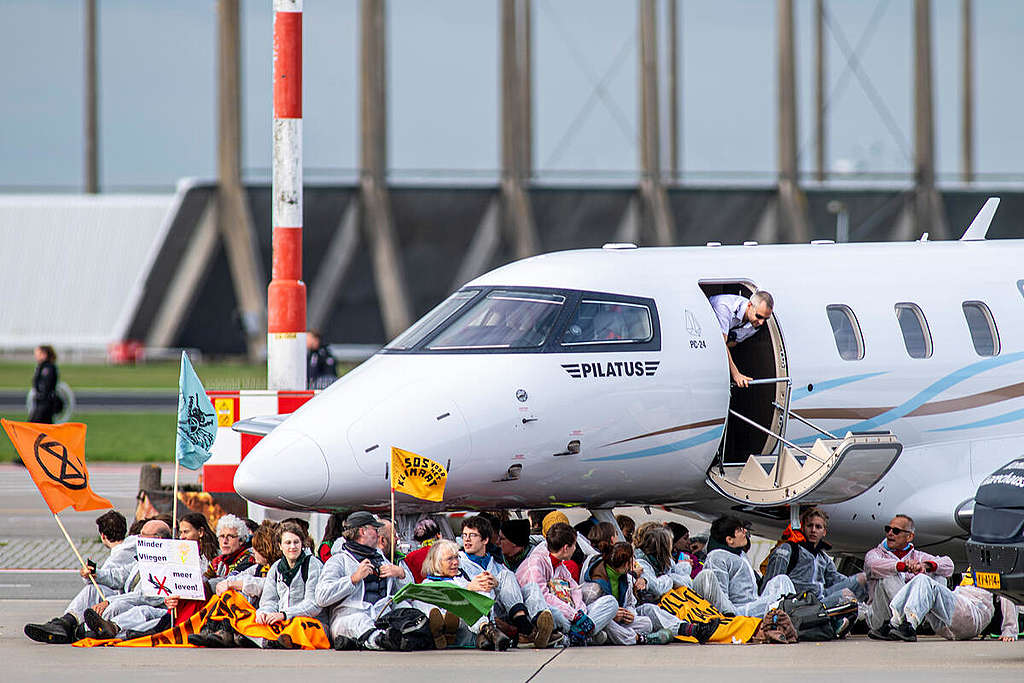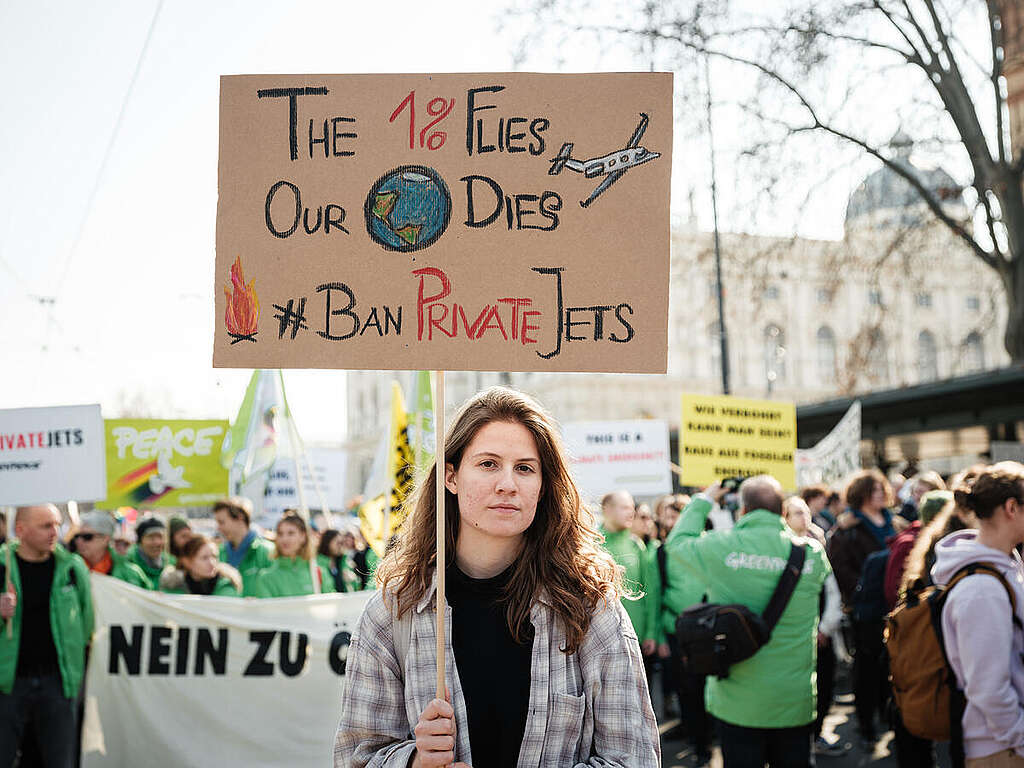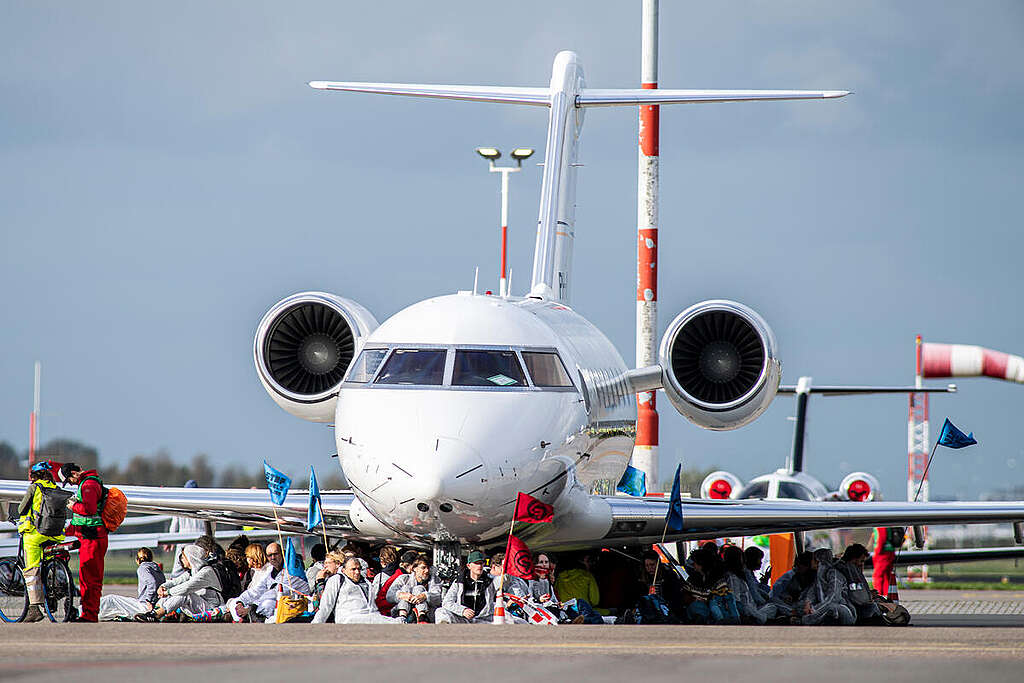The global private jets fleet has more than doubled in two decades. In the post-COVID-19 pandemic years, private jet sales experienced a significant surge. This trend continued into 2021 and 2022, with many private jet manufacturers reporting record orders and deliveries. The rise of fractional ownership (a model where multiple individuals or entities each purchase a fraction of the jet and a corresponding amount of flight time) and jet card programs (prepaid access to private jet services) also led to an increase in private jet use.
Recent investigations have brought the issue into the public eye, revealing the extent of private jet use among celebrities and the super-rich. These investigations, often using private jet trackers, have shown how frequently and frivolously some individuals use these jets (with flights often lasting less than an hour), leading to public outcry and increased scrutiny. Journalists and activists have played a crucial role in highlighting this issue, using data to put private jet users on the spot and demanding accountability.
Calling for a ban on private jets is a stance rooted in the principles of climate justice and social equity. Here are 3 reasons why private jets must be banned.
1. Private jets are the most polluting form of transport
Private jets are notorious for their disproportionate carbon footprint. Despite accounting for a mere fraction of total flights, they contribute significantly to greenhouse gas emissions: a private jet flight causes about 10 times more CO2 emissions than a regular flight per flight per person.
 In November 2022, a large group of activists from Extinction Rebellion and Greenpeace Netherlands held a peaceful protest at Amsterdam Schiphol Airport, the second biggest in the EU, stopping private jets from landing and taking off and sitting and cycling around the area where private jets are parked.
In November 2022, a large group of activists from Extinction Rebellion and Greenpeace Netherlands held a peaceful protest at Amsterdam Schiphol Airport, the second biggest in the EU, stopping private jets from landing and taking off and sitting and cycling around the area where private jets are parked.According to a 2019 study by Transport & Environment, private jets are 10 times more carbon-intensive than commercial flights and 50 times more polluting than trains. The excessive emissions from these jets contribute to the accelerating climate crisis.
One percent of the world’s population accounts for more than half of the carbon dioxide emissions from passenger air travel. You can bet that people who have the luxury of travelling by private jet account for a significant proportion of this one per cent.
In a world grappling with the severe impacts of climate change — rising sea levels, extreme weather events, and biodiversity loss — such “luxury emissions” are indefensible. Combating climate change requires stringent measures against all high-emission sources, especially those that are non-essential and benefit only a privileged few.

Join the movement! Call on governments to ban private jets, in order to tackle climate injustice and inequality.
2. Private jets are most unequal form of transport and the epitome of carbon inequality
Did you know that 80% of the world’s population have never flown? A single transatlantic flight on a private jet can produce emissions equivalent to those generated by an average person over several years.
 In May 2023, a hundred climate activists supporting Greenpeace, Stay Grounded, Extinction Rebellion, Scientist Rebellion and other climate movement groups from 17 countries have disrupted Europe’s biggest private jets sales fair, the annual European Business Aviation Convention & Exhibition (EBACE) in Geneva, demanding a ban on private jets. © Thomas Wolf / Stay Grounded
In May 2023, a hundred climate activists supporting Greenpeace, Stay Grounded, Extinction Rebellion, Scientist Rebellion and other climate movement groups from 17 countries have disrupted Europe’s biggest private jets sales fair, the annual European Business Aviation Convention & Exhibition (EBACE) in Geneva, demanding a ban on private jets. © Thomas Wolf / Stay GroundedThe use of private jets is emblematic of the vast inequalities that plague modern society. A tiny ultra-wealthy minority of the global population utilise private jets, while the environmental costs are borne by the planet and most of its inhabitants, particularly the most vulnerable communities. This is another example of carbon inequality where the rich contribute disproportionately to emissions, exacerbating the climate crisis, while the majority suffer the most from its consequences.
This inequality is particularly disgusting because many private jet owners escape aviation taxes, while there are few curbs on the greenhouse gases emitted, as shown by the High Flyers report published by the Institute for Policy Studies in 2023. The same report highlights the inadequacy of the contribution made by users of private jets for their access to airways and transport infrastructures (airports, etc): “In effect, commercial passengers subsidise the carbon and convenience of the High Flyers“. Stowaways in the air transport system?
Social justice is intrinsically linked to climate justice. The polluting lifestyle of the super-rich, exemplified by the frequent use of private jets, starkly contrasts with the everyday reality of billions who have minimal carbon footprints but face severe climate impacts. This inequity underscores the need for policies that hold high emitters accountable and promote fairer, more sustainable transport systems.
3. Private jets are wasteful and unsustainable
Private jets are inherently inefficient. They typically carry a small number of passengers while consuming vast amounts of fuel. Flying short distances also means planes are less fuel-efficient.
 November 2022: The protesters are people concerned about the climate crisis and local residents whose lives are affected by the noise and air pollution from Schiphol Airport. The airport should be reducing its flight movements, but is instead even building a brand new terminal. Protesters are asking for a smaller airport, fewer flights, more trains and a ban on private jets and unnecessary short-haul flights. © Marten van Dijl / Greenpeace
November 2022: The protesters are people concerned about the climate crisis and local residents whose lives are affected by the noise and air pollution from Schiphol Airport. The airport should be reducing its flight movements, but is instead even building a brand new terminal. Protesters are asking for a smaller airport, fewer flights, more trains and a ban on private jets and unnecessary short-haul flights. © Marten van Dijl / GreenpeaceWhile tackling the climate crisis requires far fewer flights of any kind, those journeys that still need to be flown should be done with commercial airlines, which are far more efficient than private jets in terms of fuel use and passenger capacity. Perhaps the least the ultra-rich can do is take a regular, commercial plane like other people who have the means and the privilege to travel by plane?
In a world where resources must be used judiciously to avert ecological disaster, such wastefulness is unacceptable.
Policy and regulation for climate justice: let’s ban private jets
How can politicians and governments reasonably ask the majority of the population to tighten their belts and be careful about their emissions (whether linked to transport, food, equipment or housing) when a tiny privileged minority is allowed to pollute excessively with private aircraft with complete impunity? Do they think the majority of people will unflinchingly accept the luxurious and wasteful lifestyles of the ultra-rich while they remain on the front lines of the impacts of ongoing climate chaos, rising inequality and cost of living crisis?
Climate justice demands that decision-makers start by regulating and restricting the most indecent, superfluous and non-essential emissions. Banning private jets is a matter of justice and would be a powerful demonstration of commitment to tackling the climate crisis.
The fight against climate change necessitates that those who contribute the most to the problem take responsibility and lead by example. Banning private jets would send a strong message that luxury emissions are no longer acceptable and that the world is serious about achieving climate justice.
Join the movement. We can help build a future where the benefits of progress are shared more equitably, and the burdens of climate change are not unjustly borne by the most vulnerable.

Join the movement! Call on governments to ban private jets, in order to tackle climate injustice and inequality.

 3 months ago
58
3 months ago
58


